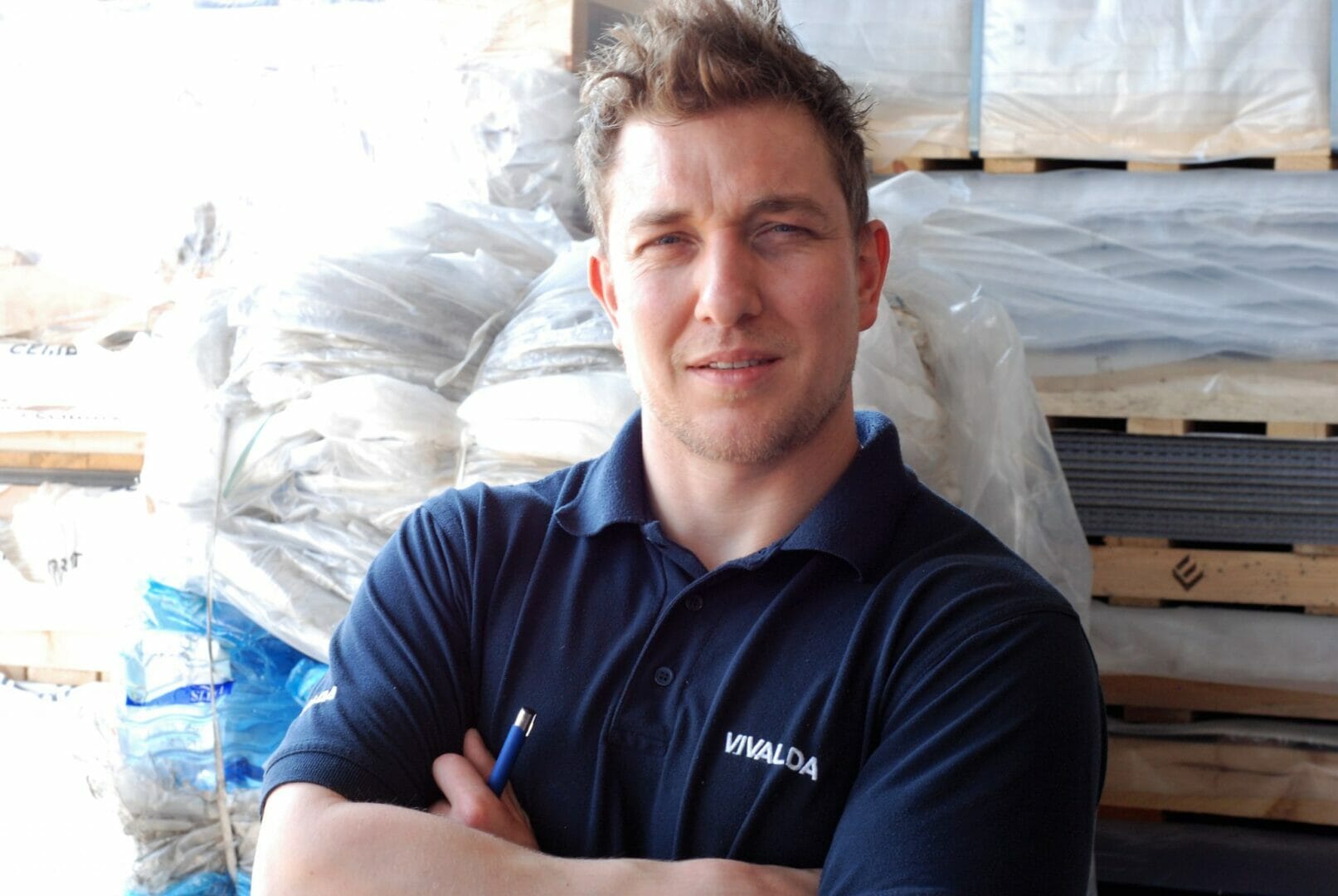
Vivalda, the UK’s leading distributor of architectural cladding, has demonstrated the value that recycling can bring to manufacturers following a year-long pilot scheme at its Hull facility. Having embraced a new environmental policy in early 2017, the business’s north east operation has reduced its annual waste bills by more than £10,000 or 75 per cent.
Concerned about the increasing cost of landfill charges and the volume of waste it was producing, the business was keen to explore ways it could divert its four main waste streams – plastic, panel board, insulation and metal – away from landfill.
Liam Pickup is the driving force behind the initiative, which has completely changed the way Vivalda’s Hull site manages its waste. He explained: “Until January 2017, we simply threw all of our plastic wrapping, off-cuts of cladding and insulation into skips. It was a huge waste that was costing us around £1,400 per month in collection and landfill charges. And those costs were going to getting bigger, not smaller.”
Having installed a bailing machine, courtesy of a local equipment provider, Vivalda Hull now has its plastic waste collected and recycled fee of charge. Similarly, off-cuts of insulation panels are now delivered to local building firms, who can use it as additional material for projects. Panel board off-cuts, which are generally made from glass reinforced concrete can be used as a valuable resource. Finally, Vivalda has installed an aluminium extraction unit, that turns waste metal into a valuable commodity that goes back into the manufacturing life cycle.”
Commenting on the success of the pilot, Liam Pickup said: “We have had a lot of support and interest from the staff as well as local companies that are interested in using the materials that we previously threw away. In terms of capital cost, the only kit we’ve needed to acquire is the plastic bailer and the aluminium extractor.”
Encouraged by the benefits of the recycling scheme, Vivalda is now looking to roll out a green policy across all of its eight UK facilities, hoping to reach out to local partners in the same way that has proved so successful in the North East.
Liam Pickup concluded: “It’s been amazing what we’ve been able to achieve with just a little bit of planning and investment. To really make recycling work, we’re realised that it’s about good communication and educating both staff, suppliers and local businesses about the potential value that is hidden within waste materials.”
